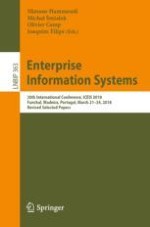2019 | OriginalPaper | Buchkapitel
Inferring Students’ Emotions Using a Hybrid Approach that Combine Cognitive and Physical Data
verfasst von : Ernani Gottardo, Andrey Ricardo Pimentel
Erschienen in: Enterprise Information Systems
Aktivieren Sie unsere intelligente Suche, um passende Fachinhalte oder Patente zu finden.
Wählen Sie Textabschnitte aus um mit Künstlicher Intelligenz passenden Patente zu finden. powered by
Markieren Sie Textabschnitte, um KI-gestützt weitere passende Inhalte zu finden. powered by
